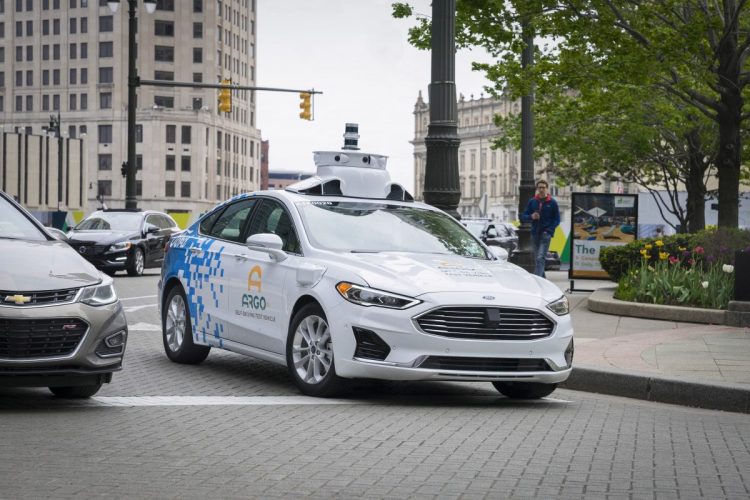Self-driving cars are coming to Austin public roads, courtesy of Ford. The automaker today announced that it’s expanding its autonomous vehicle program in collaboration with Argo AI to the Texas city, its third deployment after Miami-Dade County and Washington, D.C.
Ford says that in the coming months it will begin mapping roads and testing its self-driving system in Austin, during which time it will conduct pilots with businesses to “see how [it] can best deploy its vehicles.” Initially, Ford’s autonomous fleets will be driven manually through east Austin and downtown, after which they’ll expand beyond those regions.
“We are excited to bring more transportation solutions to a growing city that is beloved by visitors and community members alike,” wrote Ford CEO Sherif Marakby in a Medium post. “We think now is the perfect time to continue exploring how this technology can become an important part of a city’s transportation infrastructure — and make people’s lives easier.”
Marakby explained that Austin’s expanding population — and correspondingly denser traffic — provide a perfect testbed for its self-driving technology. He cites a report from the Capital Area Metropolitan Planning Organization, which predicts vehicle use in the Austin region could double by 2040, while highway capacity will only grow 15%.
June 5th: The AI Audit in NYC
Join us next week in NYC to engage with top executive leaders, delving into strategies for auditing AI models to ensure fairness, optimal performance, and ethical compliance across diverse organizations. Secure your attendance for this exclusive invite-only event.
“Almost 75% of Austinites commute by driving alone in personal vehicles. This is simply unsustainable,” said Austin mayor Steve Adler in a statement. “Our 20-year goal is for at least 50% of people to take advantage of other transportation options, like buses or bicycles … That’s why it’s exciting that Ford is bringing its self-driving vehicle operations to our city.”
Austin also poses unique challenges to Ford’s self-driving cars, one of which is the presence of scooters. Argo AI president Peter Rander notes that the city has more scooter activity than the automaker has encountered in cities it’s currently testing in. “Scooters are especially interesting because they’re essentially motorized pedestrians, with speedy and unique movement behavior that needs to be accounted for,” he said in a statement.
As recently as April, Ford said it planned to deploy upwards of 100 autonomous cars by the end of 2019.
To help achieve that milestone, the automaker recently acquired Quantum Signal — the 20-year-old company behind computer-generated environments that militaries have used to test unmanned remote and autonomous systems — for an undisclosed amount. At the time, Ford said it would make use of Quantum’s “extensive experience” in real-time simulation to build out its transportation-as-a-service (TaaS) platform, as well as controls that support functional safety and other vehicle technologies.
Ford has a close relationship with Pittsburgh-based Argo AI, which it pledged to invest $1 billion in over the next five years. Argo is currently testing autonomous cars in Miami and Detroit, with plans to expand tests to Washington, D.C. in the coming months. It has also obtained a permit to put its self-driving cars on California roads.
In July, Argo revealed that VW was investing $1 billion in cash and contributing its European self-driving unit, valued at $1.6 billion. The deal gave Argo a valuation of just over $7 billion, one of the highest in the autonomous vehicle segment.
In November, Ford unveiled a collaboration with Postmates to deliver food, personal care items, and other everyday goods from Walmart stores in Miami-Dade County. This came months after Ford launched a delivery program — albeit a non-autonomous pilot — with Postmates in Miami and Miami Beach, Florida. The latter lets customers order goods from local businesses. Orders are delivered via Ford Transit Connect cars sporting multiple storage lockers, speakers, and touchscreens.
As part of a $900 million investment in its Michigan manufacturing footprint that was announced two years ago, the automaker said in March that it would build a new factory dedicated to the production of autonomous vehicles. In July, Ford revealed it would create a separate $4 billion Detroit-based unit to house the research, engineering, systems integration, business strategy, and development operations for its self-driving vehicle fleet.

